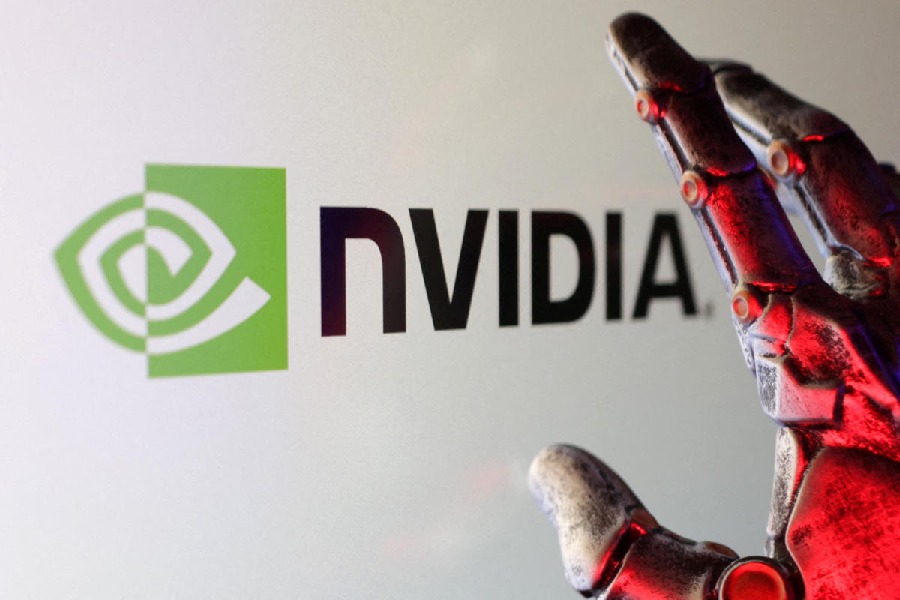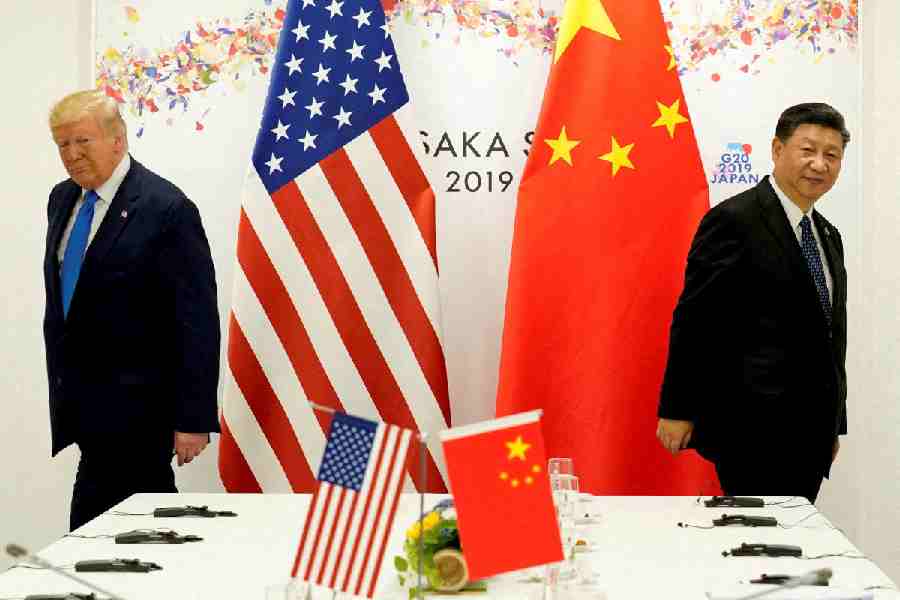Global chip stocks were battered on Wednesday on fresh evidence of how U.S. President Donald Trump's shifting trade policy was complicating the outlook for semiconductor and computing giants, including AI pioneer Nvidia .
Attempts to reorient global trade through tariffs and export curbs have started to show the effect as Nvidia warned of a $5.5 billion hit after Washington restricted exports of its AI processor tailored for China, while Dutch chip-making tools giant ASML raised doubts about its outlook.
The US restriction, which also hit the MI308 processor of Advanced Micro Devices, marked the latest blow for the AI chip trade that is losing steam after a two-year rally as tariff threats and concerns over Big Tech's spending weigh on sentiment.
Nvidia shares fell 6.3 per cent in US premarket trading, with the company set to lose more than $160 billion in market value.
AMD fell 6.6 per cent as it warned of a $800 million hit from the latest curb, while other AI-related chip stocks, including Arm, Broadcom, Marvell Technology and Micron dropped between 3.5 per cent and 4.6 per cent.
Tightening U.S. export curbs have in recent years made it harder for American chipmakers to tap the Chinese market, but the country remains a key source of revenue.
Nvidia drew over 13 per cent of its sales, or about $17 billion, from China in its last financial year, although that was down from 21 per cent in fiscal 2023.
"The H20 portion was about $12 billion or so (of the total China revenue), roughly about 30 cents of earnings per share, not trivial but not enormous in the grand scheme of things," Bernstein analyst Stacy Rasgon said.
"H20 performance is low, well below already-available Chinese alternatives; a ban essentially simply hands the Chinese AI market over to Huawei."
Rasgon said the move surprised many investors as shares had surged nearly 18 per cent last week, partly due to a report that the Trump administration planned to back off from such a curb after CEO Jensen Huang attended a Mar-a-Lago dinner.
The company had earlier this week unveiled plans to build AI servers worth as much as $500 billion in the U.S. over the next four years, a move largely seen as an overture to Trump.
Trump has for now exempted semiconductors and some other electronics from his tariffs, but he has warned that sector-specific levies will be announced in the coming weeks.
Such tariffs could cost U.S. semiconductor equipment makers more than $1 billion a year, Reuters reported on Tuesday.
Nvidia fallout
News of the latest export curb on Nvidia sparked a selloff in chip companies and its suppliers across the globe.
In South Korea, Samsung closed down about 3 per cent, while SK Hynix closed 4 per cent lower.
European chipmakers ASM International and Infineon Technologies fell close to 2 per cent, while Japanese chip-testing equipment maker Advantest - an Nvidia supplier - was the Nikkei's second-worst performer with a 5 per cent tumble.
Still, some analysts said Nvidia's overall sales have continued to surge even as the China contribution slows while chip demand remains strong from big cloud companies.
"While we acknowledge the likely impact to near-term numbers, we would stress that Blackwell shipments to core hyperscale customers remains the driver of fundamentals," TD Cowen analysts said, referring to Nvidia's latest line of AI systems.











